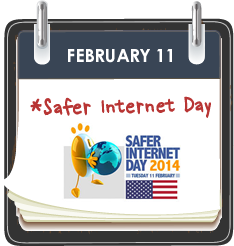 Frienedy is the first site of its kind that lets users of all ages manage life in groups. Engineered with parental permissions at the core, the company has created a private online environment that leverages parental engagement for users under 13 to guide the social media experience. Frienedy offers users of all ages a web application that provides private group communication.
Frienedy is the first site of its kind that lets users of all ages manage life in groups. Engineered with parental permissions at the core, the company has created a private online environment that leverages parental engagement for users under 13 to guide the social media experience. Frienedy offers users of all ages a web application that provides private group communication.
Until now, there has been a void in the social networking space both for users under age 13 as well as for managing content and social feeds for groups of all types.
According to Founder and CEO, Janel Patterson, “Kids are getting online much younger than they were when today’s social networking norms were first established, which has led to a rise in cyber bullying and cyber predators. Parents need a tool that enables them to proactively introduce social media to their children when they decide the time is right- and before kids go out and discover it themselves. At Frienedy, our core mission is to prevent cyber bullying before it starts and to eliminate the risk of children becoming victims of cyber predators.”
There is also a market for managing social feeds and content for groups that have members of all ages. According to Jake Giganti, COO for Frienedy, “I grew up on social media. I never saw an easy way to manage all of the events and social feeds and basic information for every group I was part of growing up. Not just my soccer team and classes, but my different groups of friends. And, now as an adult, I have even more social groups I’m part of and need to stay engaged with. Frienedy Groups solves this problem- but more compellingly- for users of all ages.” Groups can communicate privately and maintain practice or meeting schedules, classroom assignments, youth group activities, photos, videos, documents, even trigger last minute notifications. Frienedy is the way to manage all of this – and for younger users, under discreet parental oversight.
Frienedy includes a robust events calendar for managing group events and a shopping list feature called WishList to promote user engagement. Mobile apps are currently in development, and the website is currently mobile responsive for any device. You can sign up for a free account by going to www.frienedy.com.
About Frienedy
Frienedy, LLC (www.frienedy.com) was founded in 2013 as a safe, private group networking community designed for users and groups of all ages. Frienedy complies with COPPA standards for users under 13, enabling a revolutionary new way for people of all ages to connect, share and interact safely and privately in all of life’s Groups.
Contact: Janel Patterson
Frienedy, LLC
Phone: (636) 542-0540
Email: press@frienedy.com
URL: www.frienedy.com




